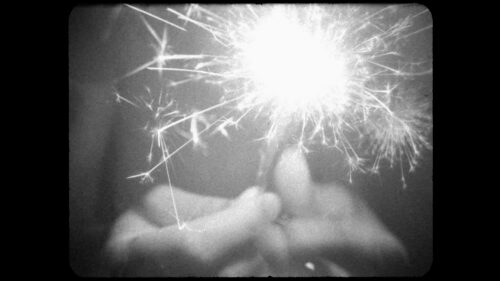In filmmaking, there is often a change of direction in the middle of the process; perhaps a change of style or approach. These shifts are often due to something not quite right during the creative process. However, for Nevine Gerits, the process and change of approach she took behind the scenes resonated with the personal journey she and her family went through during the making of the documentary The Pasha, my mother and I (2023). The film tells the story of Kurdistan’s struggle for independence and the oppression they have endured. Director Nevine Gerits chose a personal approach in presenting this narrative, namely through her family history and her tough relationship with her mother who was an activist in her life to fight for Kurdistan.
The Pasha, my mother and I (2023) was screened at Bioskop Sonobudoyo on December 6, 2023. This feature film is a finalist of FFD 2023 International Feature-Length Competition program. Director Nevine Gerits attended the screening and shared her story through a Q&A session after the screening. Gerits opened the session by sharing her inspiration for making this film. Initially, she heard that Kurdistan was widely discussed in the news because of the political situation and the war. However, based on that, Gerits didn’t want to make a historical documentary like many others.

Behind Gerits’ passion for filmmaking and talking with her family, there is a story about how she ran away from home at the age of 18. She was upset with her mother for not giving enough attention to her children. At the time, Gerits’ mother was an activist for the Kurdistan movement, which made Gerits even more fed up and angry to hear about Kurdistan every day. “I was 35 and I saw on TV the women fighting ISIS. I started hearing the language that I grew up with and I felt connected with these people fighting for their freedom. (I knew) I needed to go back home and talk to my mother. And that’s when I started the film.” Gerits stated.
While working on this film, Gerits felt that the anger she felt was slowly dissolving. Instead, Gerits was ready to confront her past and ask the questions she needed to ask. Gerits began conducting interviews with all of her family members, who were also activists in Kurdistan’s liberation movement. However, like many families, Gerits found that many of the family members did not want to talk about the past and the problems among them. There was a strong sadness that was felt, not only because family relations were often rocky, but also the trauma of the painful experience of struggle that each of them and the people of Kurdistan still feel today.
Finding it difficult to get information from her family members led Gerits to refocus on a more personal story. She began to ask what it meant to fight and how the sense of fighting, filled with passion and trauma, was passed down from her grandfather to her mother, and from her mother to her. It was only after several years of research that she discovered her grandfather’s letters to Gerits’ mother. She decided to structure The Pasha, my mother and I (2023) from these letters. The letters not only contain the details of the relationship between father and son but also the social context of the struggle of the Kurdish people.

When asked about the many shifts in outlook and approach during the filmmaking process and the final result, Gerits has no regrets at all, feeling that these shifts in direction all felt natural, following what she felt during the filming. “Now I can say It was for the better. The focus on my mother and what did I get from her and what do I pass on and what do I don’t… That’s more important.” she said.
While the grand narrative of The Pasha, my mother and I (2023) highlights the Kurdish people’s striving for freedom throughout their history, the personal touch and intimate historical tracing of Gerits’ family is something else. Gerits underlined that the process behind the film was the most important for her personally. Because of this film, she had to go through a process of letting go of her anger, which led to questions and confrontations with her family. The film is a search for freedom from a family past that restricted her from being close to her mother. “I’ll never get their full story. But, now I know what I can pass on to my son. And for me, I have freedom from my family’s history now.”
Covered by Aradi Priyanto on December 6, 2023.



